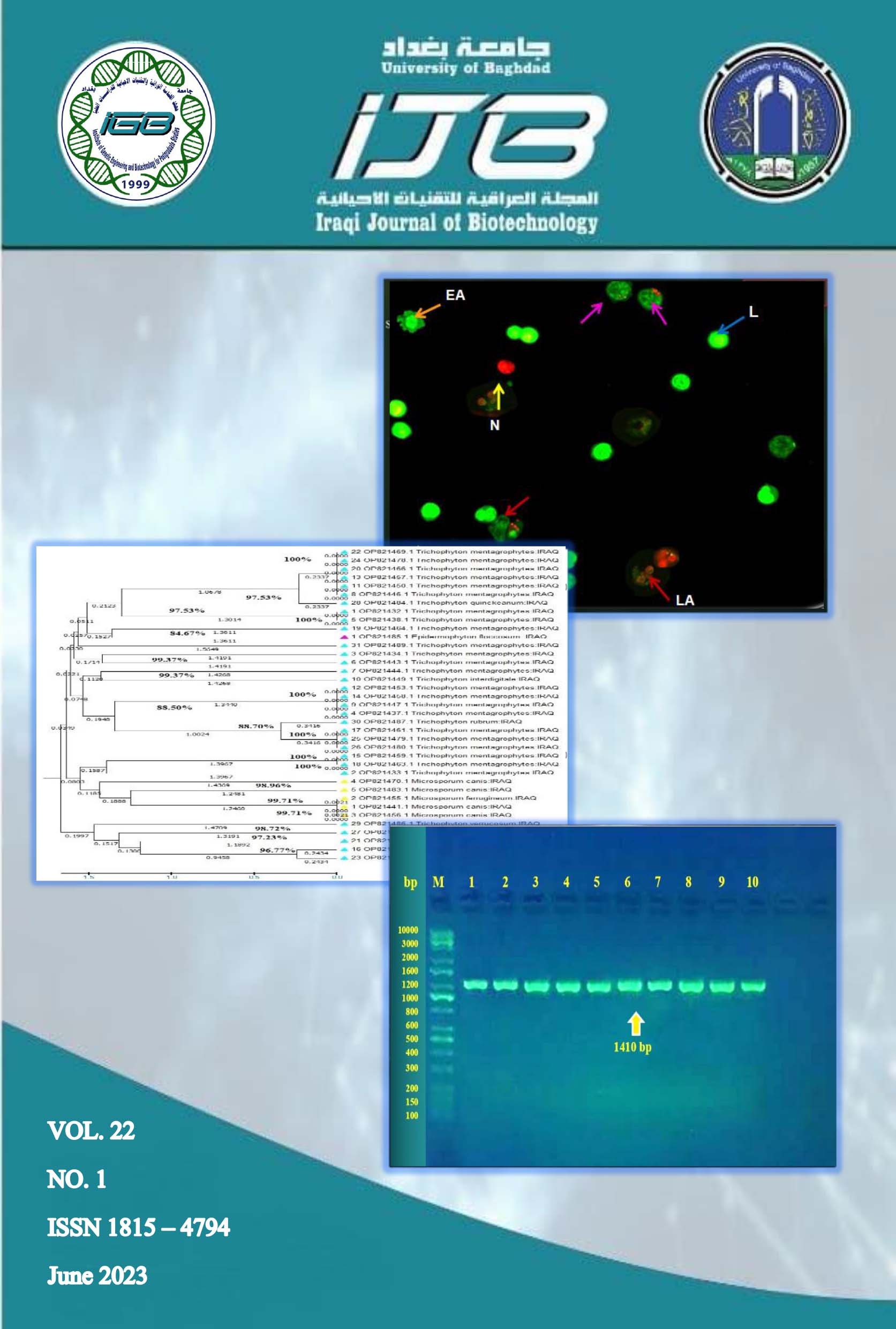Assessment of some Interleukins in Sample of Iraqi Patients with Ankylosing Spondylitis
Abstract
Ankylosing spondylitis (AS) is a widespread persistent inflammation illness indicated by chronic inflammatory of the peripheral joints and vertebral column, which results in bone degradation consequently, has an obvious impact on the worth of the sufferers' lives. Cytokines have a key role in the pathophysiology of AS. During the progression of a disease, inflammation is likely caused by cytokines. This study included 100 AS male patients with a mean age (40.56 ± 10.19) and a disease duration of 9.04 ± 2.03 years. The age of the male control (38.78 ± 10.57) was matched (p= 0.227). The Bath AS(Ankylosing spondylitis) Disease Activity Index (BASDAI) and the Bath AS(Ankylosing spondylitis) Functional Index (BASFI) were (3.45 ± 2.03 and 3.84 ± 2.62) respectively. It was found that 57% of patients have HLA-B27 positive and the levels of erythrocyte sedimentation rate (ESR) and C-reactive protein (CRP) were (25.39 ± 19.59 mm/h and 18.34 ± 3.45 mg/l) respectively. This study evaluated the levels of interleukins (IL-20, IL-22, and IL-24) with the development of Ankylosing spondylitis (AS) in the Iraqi population by using ELISA. The differences in the Interleukins concentrations in serum between patients and healthy controls were included. The results for serum levels of (IL-20, IL-22, and IL-24) appeared higher significant differences (p <0.0001) in patients as contrasted to healthy control (194.0 ± 52.90 pg/mL vs 99.52 ± 11.99 pg/mL), (373.8 ± 102.2 ng/mL vs 132.0 ± 41.63 ng/mL), and (389.6 ± 180.7 ng/mL vs 186.9 ± 29.38 ng/mL) respectively. In conclusion, higher serum concentrations of IL-20, IL-22, and IL-24 were found in male patients with AS in comparison to healthy controls. It was concluded that might be considered as biomarkers in AS development.


